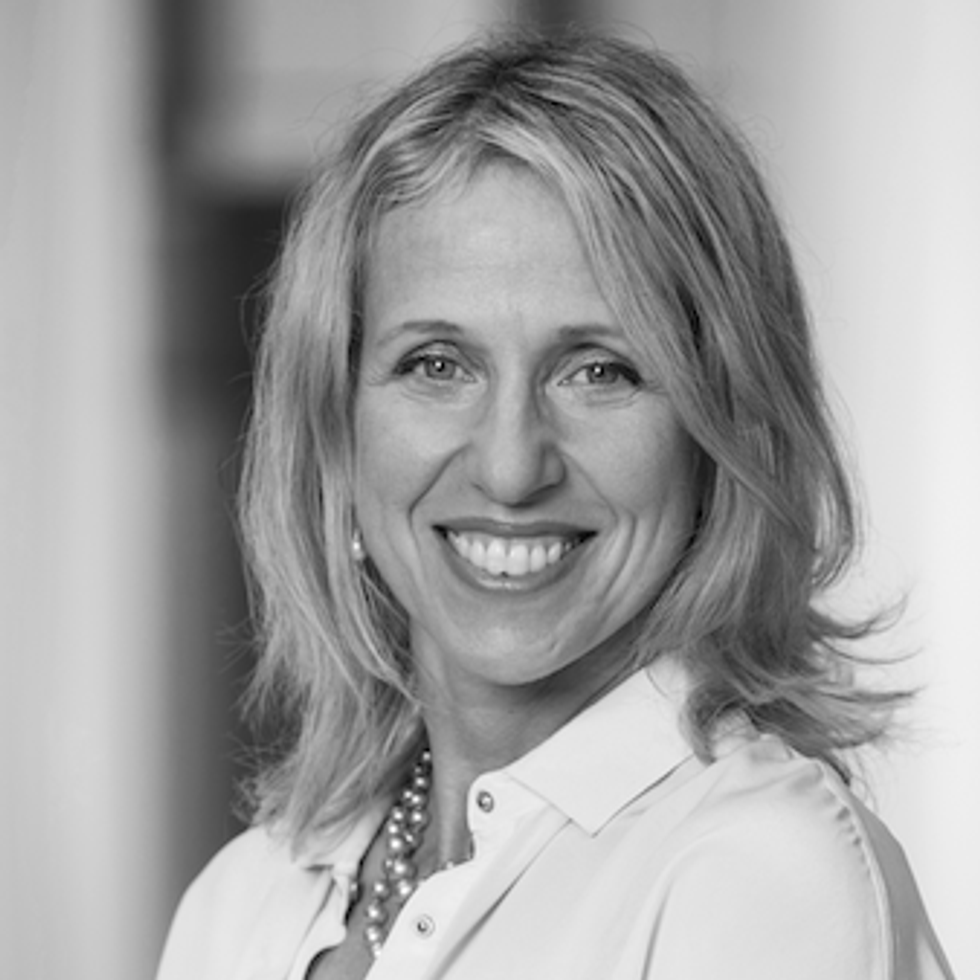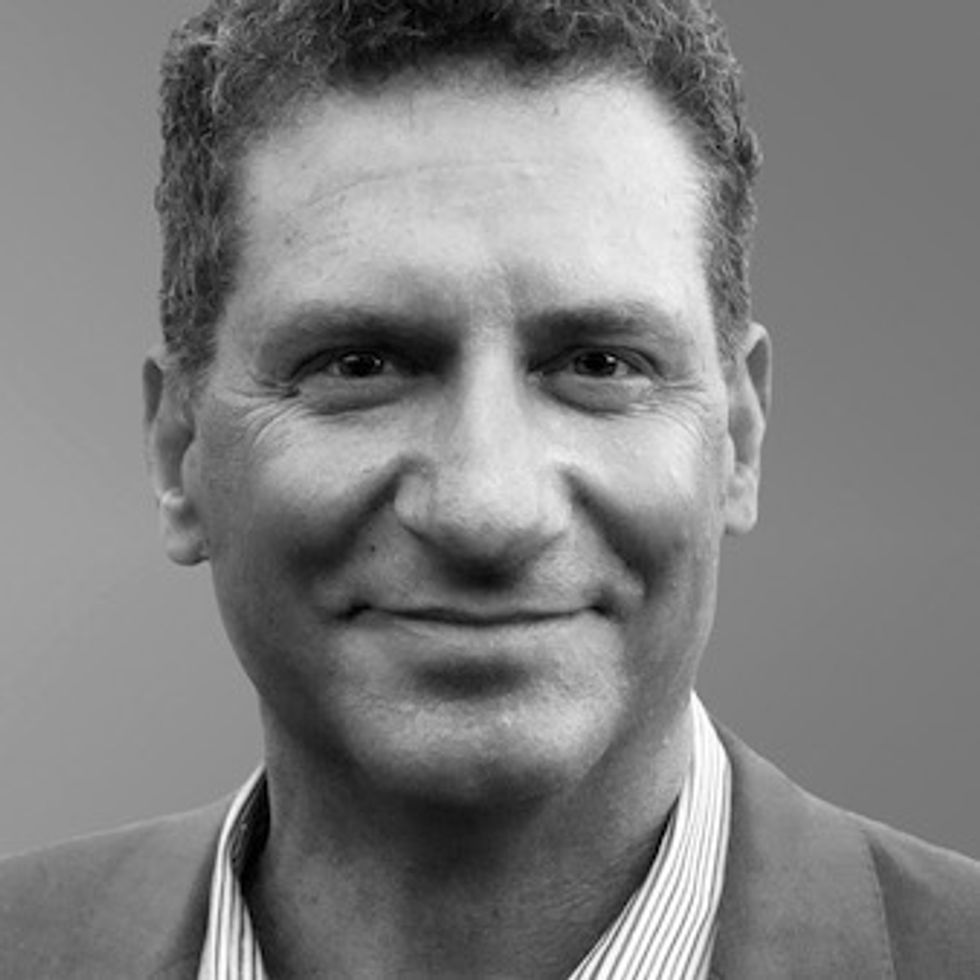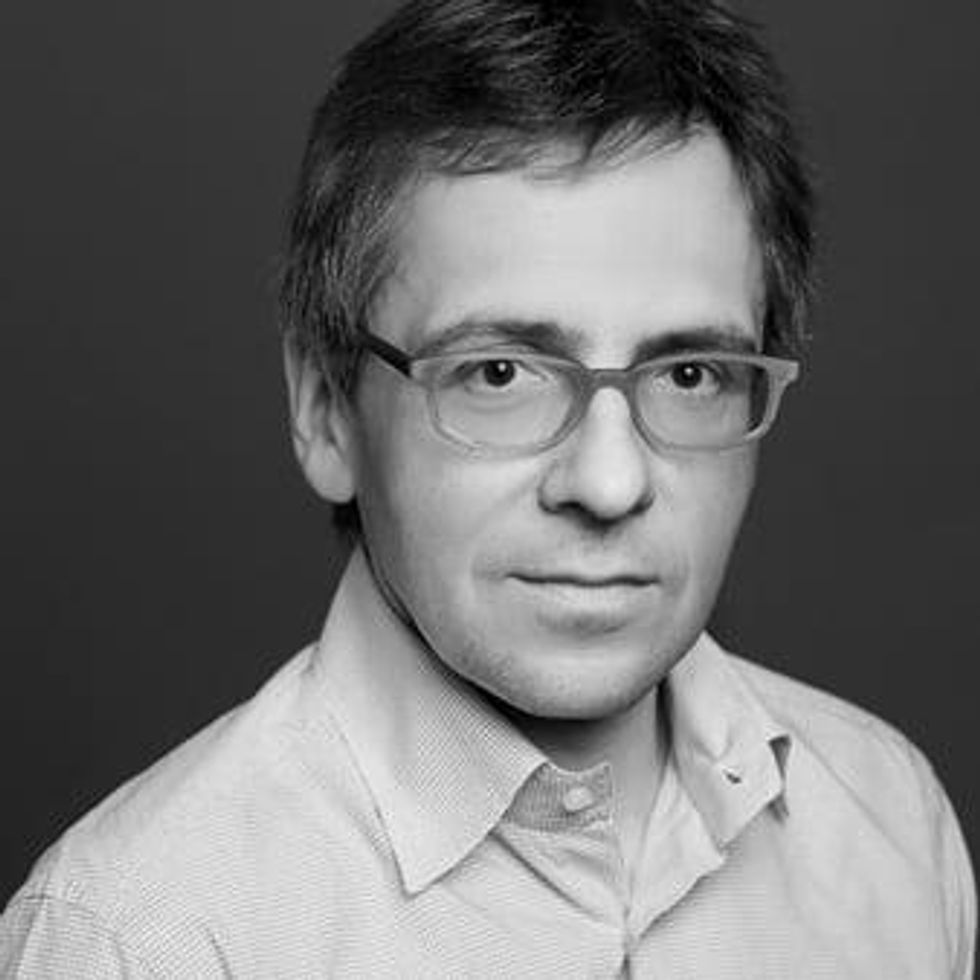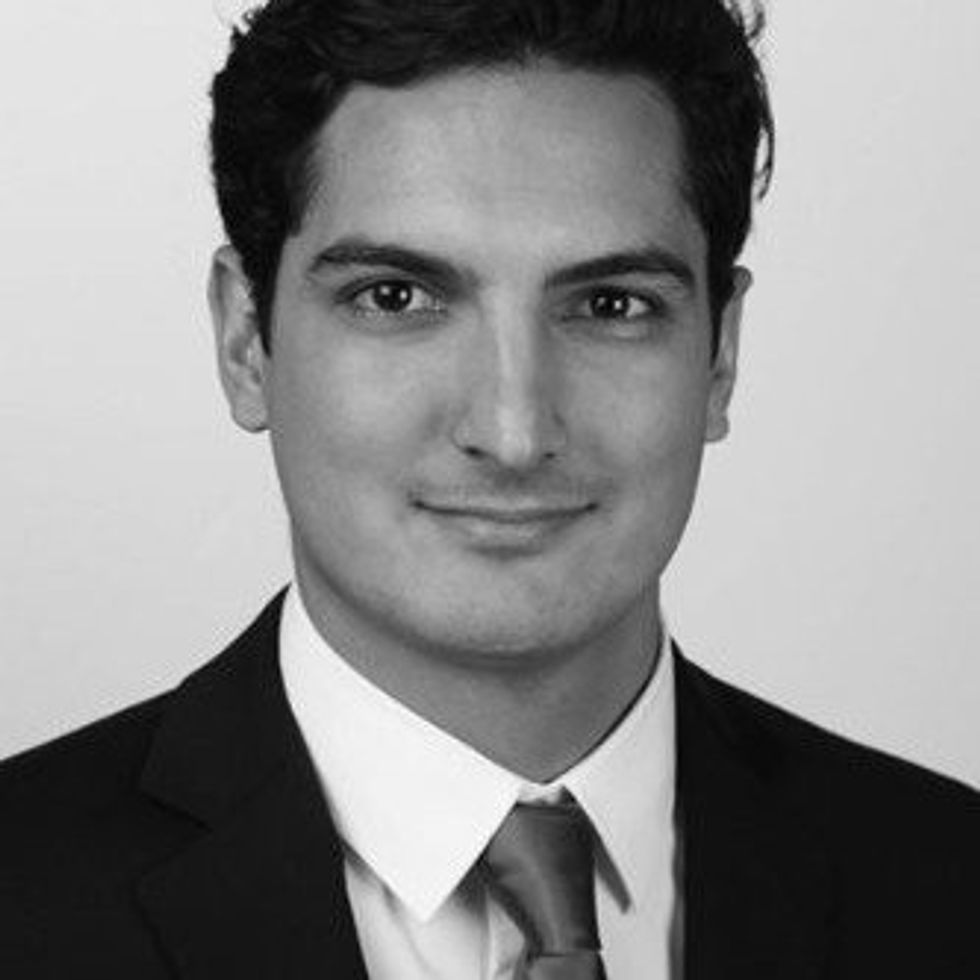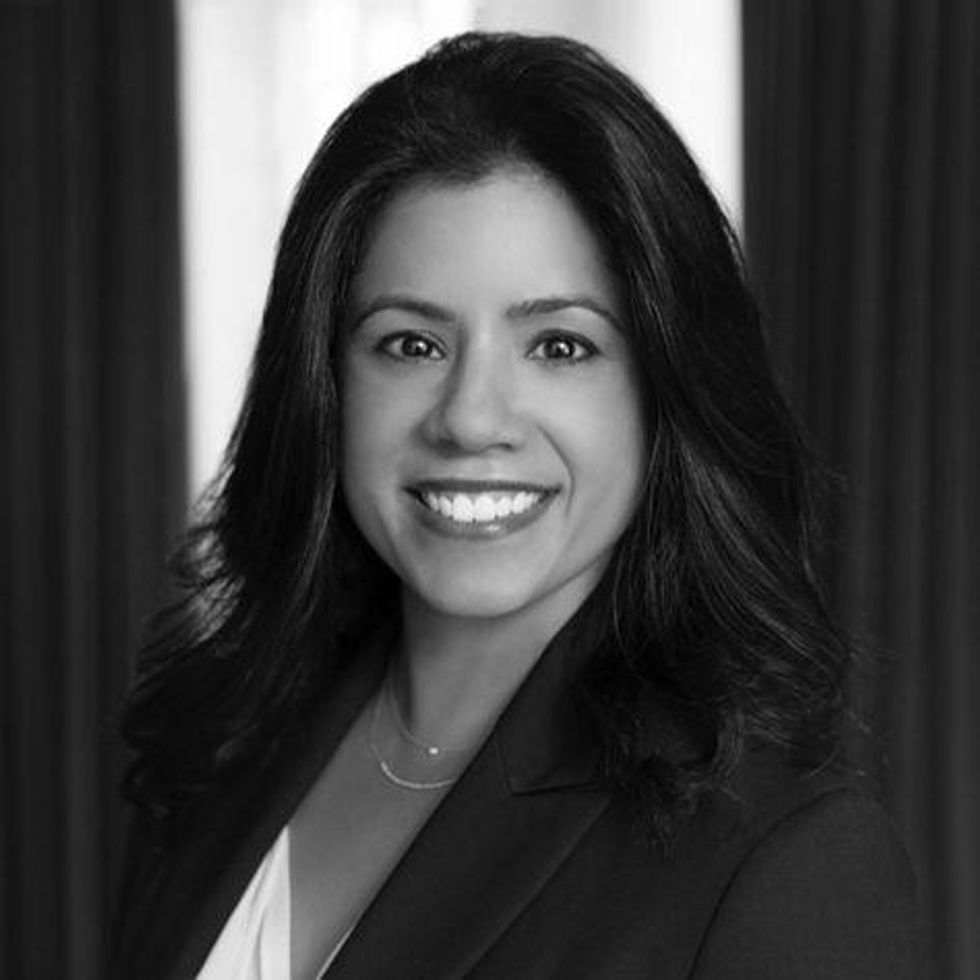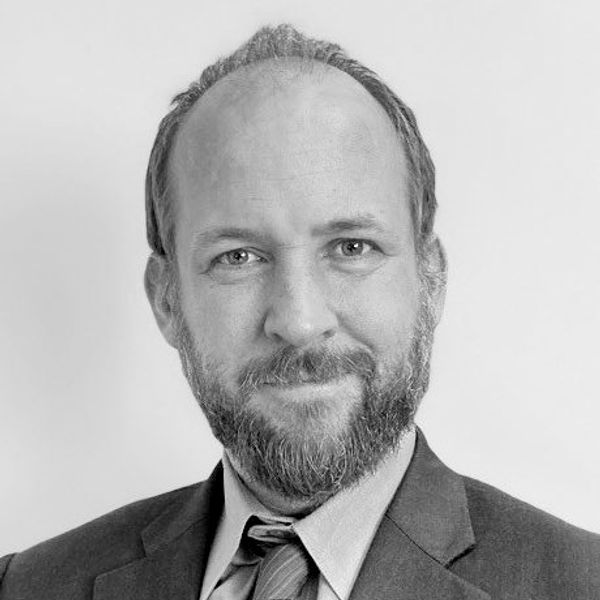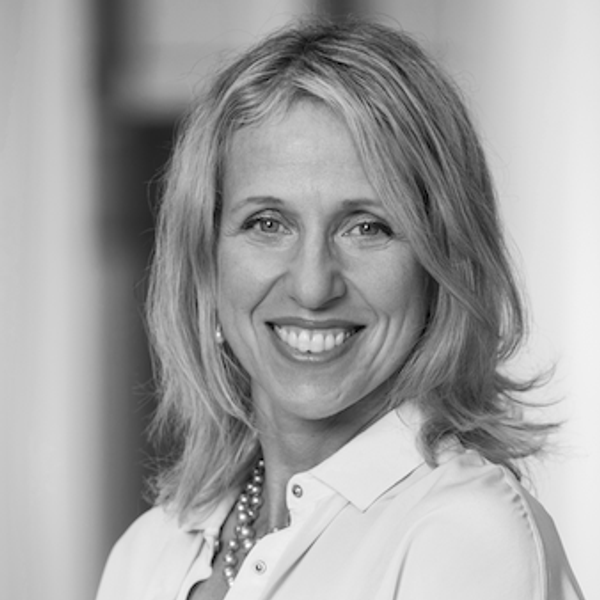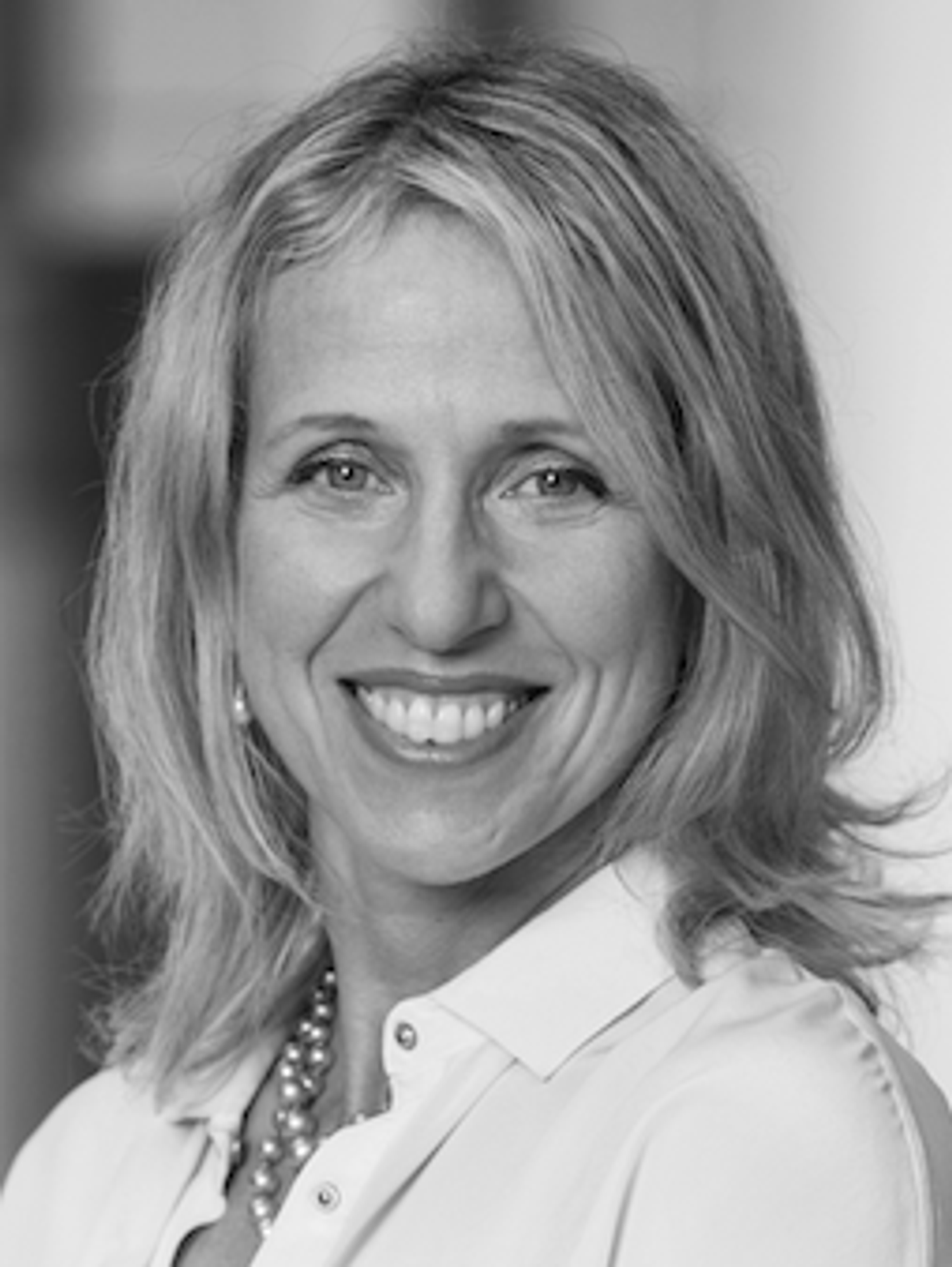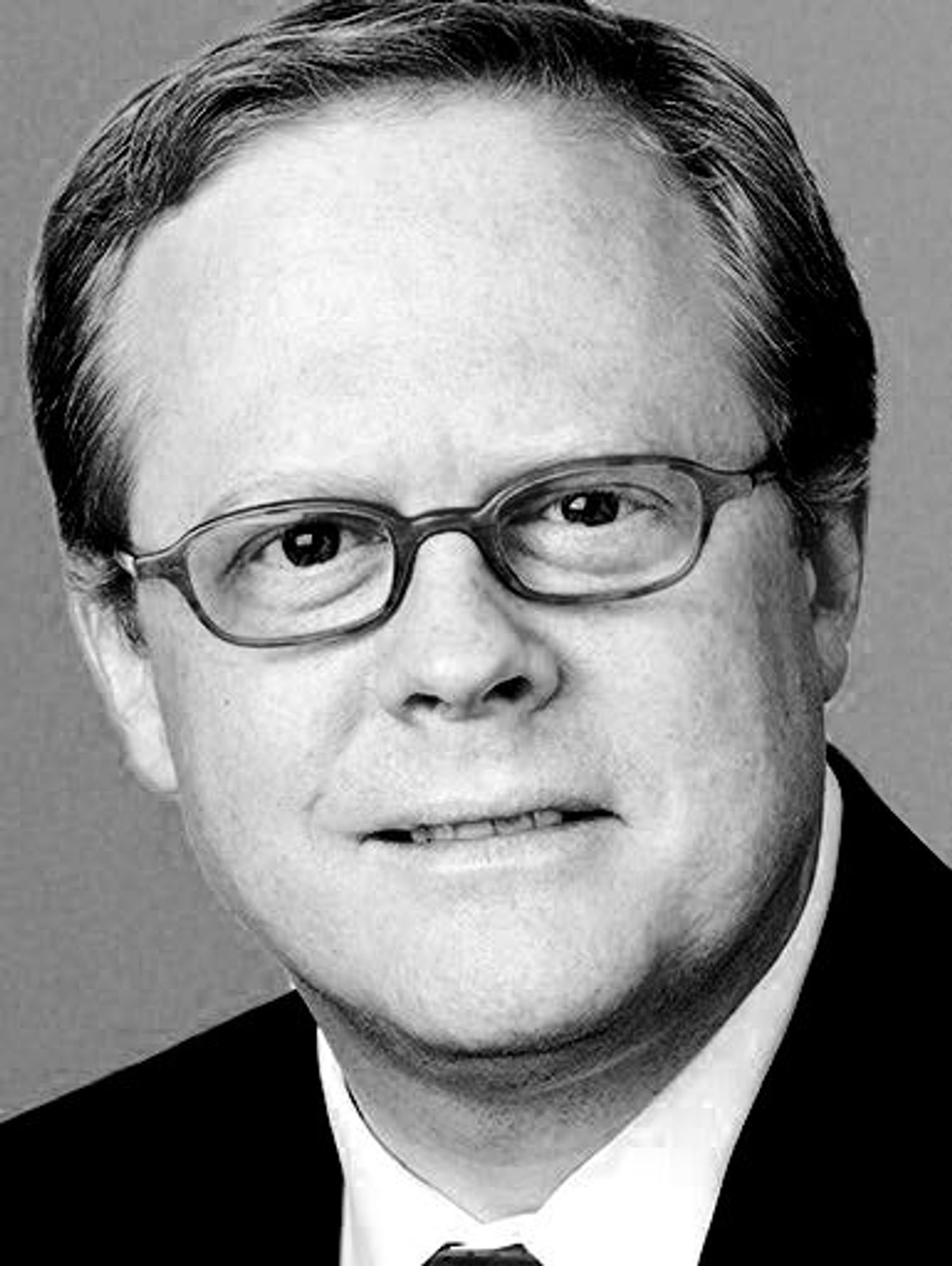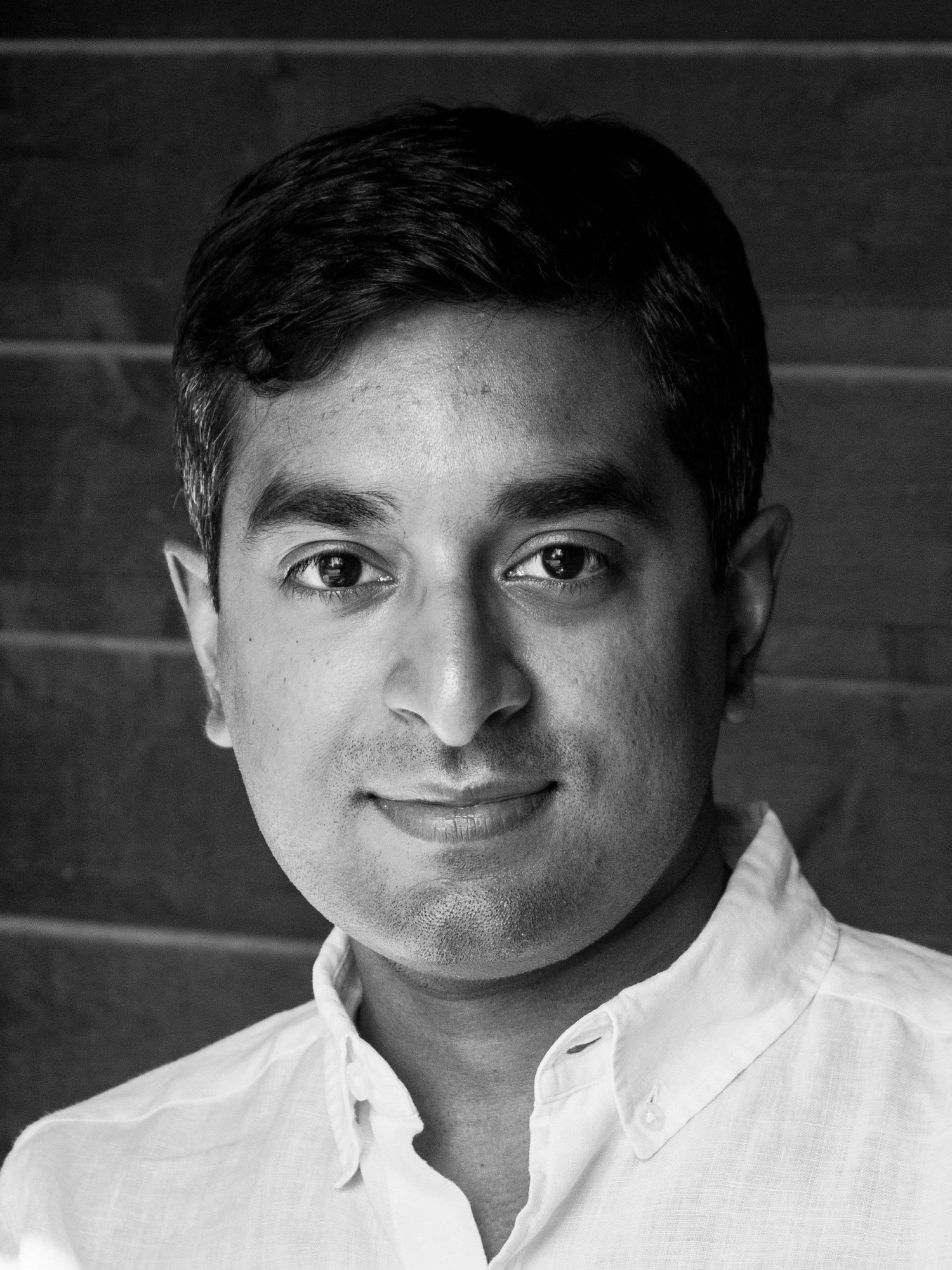
Episode 10: Can private companies lead the way on climate action?
Transcript: Season 1, Episode 10: Can private companies lead the way on climate action?
Caitlin Dean: Welcome to Living Beyond Borders, the podcast from Citi Private Bank and GZERO Media that examines the risks and opportunities in our rapidly changing world, from global politics to economics and what it all means for you.
I'm Caitlin Dean, head of the financial and professional services practice at Eurasia Group.
In many ways, it's the crisis of our lifetimes. But no, we aren't talking about the pandemic that is currently still surging around the globe. We're talking about a crisis, a lot longer in the making, and one likely to last much longer than the current pandemic.
Greta Thunberg: People are suffering. People are dying. Entire ecosystems collapsing.
Antonio Manuel de Oliveira Guterres: The climate emergency is the defining issue of our time. The last decades was the hottest in human history.
Bill Gates: For the world, it'll create literally tens of millions of climate refugees, because the closer you are to the equator, the more unlivable that it gets. And so it makes the pandemic look small. The death rate by the end of the century would be over five times the worst of what we've had in this pandemic.
Caitlin Dean: Political leaders, business executives, and average people around the world argue time and time again, that climate change and learning to live more sustainably are the biggest challenges we all face today, and that our choices now will determine our future. Many sacrifices will be made, but there are also opportunities. As we heard US President Joe Biden spell out in April on earth day,
President Biden: We have to move. We have to move quickly to meet these challenges. The steps our countries take between now and Glasgow will set the world up for success, to protect livelihoods around the world and keep global warming at a maximum 1.5 degrees Celsius. We must get on the path now in order to do that.
Caitlin Dean: Joining me now to speak about this. We have Harlin Singh, global head of sustainable investing at Citi Private Bank, Davida Heller, SVP of sustainability and ESG at Citi, and Gerry Butts, vice chairman at Eurasia Group. Welcome to all of you.
All right, let's start big picture here. Gerry, what are some of the biggest global priorities this year when it comes to sustainability?
Gerry Butts: Well, one of the big events this year in the climate calendar is of course the Council of the Parties or COP process, that is the UN sponsored process by which countries get together and agree or disagree about how they’re going to go about reducing their emissions. And this year, probably the most significant COP meeting since Paris - which is where we get the name for the Paris Accord - will be in Glasgow in November.
I think the term that we are hearing bandied about both from the perspective of governments, but more importantly, from the perspective of banks and other private firms is the concept of net zero, which to be very high-level but clear about it means that we bring into balance the amount of carbon or other greenhouse gas emissions that we emit with the amount that we remove from the atmosphere or prevent from being emitted into the atmosphere in the first place.
Caitlin Dean: Davida, what other trends do you see emerging?
Davida Heller: Yeah, I see a few other trends emerging, such as the ramping up of global climate action. We're seeing an increased focus on corporate ESG governance. ESG is an acronym for environmental, social, and governance factors that are increasingly taken into account when we look at how a company manages their business strategy. We're seeing a lot of innovative sustainable finance tied to ESG performance. But as Gerry mentioned, net zero corporate commitments are an important trend that we’re seeing.
Caitlin Dean: Well then let's zero in on net zero. There have been some questions about just how attainable the total elimination of carbon emissions really can even be. So Davida, how to financial institutions like Citi and other multinational corporations currently look at this problem and how to find a practical solution?
Davida Heller: Yeah, I think the net zero question has really evolved very quickly over the last several months. Banks emit greenhouse gases to power our offices and our branches. And we've been tracking this activity for years. We also see that the financed emissions of our loans investments, what our clients are doing, that is becoming very important.
What we've seen recently is that all the major US banks now have established a net zero target, 2050 being for financed emissions. We have established a net zero target of 2030 for our operations. And we've seen these kinds of targets really be announced in the last few months. But over 400 companies have now signed the business ambition for 1.5 degrees Celsius, which also includes a commitment of a net zero target. And we've seen over 600 companies have validated science-based targets. So this is really the direction that we're seeing corporate action.
Caitlin Dean: Well, Gerry, is all of this private sector activity in line with the kinds of goals that governments are setting and how are the private and public sectors working together?
Gerry Butts: I think maybe the most encouraging and hopeful thing that's happened in climate in the past short while is we're moving from a largely top-down government driven process into one where the private sector and large, very consequential firms, especially in the financial sector are taking the bull by the horns themselves. And in my view, that will lead to a quicker and more efficient transition to low carbon growth than if we tried to regulate our way out of this problem.
So I think that the two sides should be seen as complimentary. Of course, when a government sets an emission reduction target, what they're really saying is, "This is what we're going to depend on our private sector within our national borders to do." And I think recently you've seen an unprecedented level of ambition across the private sector.
Caitlin Dean: And how does that vary by sector? Harlin, let's bring you in. What are some of the biggest opportunities and what kinds of companies face the biggest challenges to reducing emissions down to zero?
Harlin Singh: So goals are great insofar as they're achievable and then figuring out how to achieve them as a whole other set of hurdles. The sectors that are going to face the toughest time with this are of course going to be the heavy polluters. So the metals and mining companies, cement production, et cetera, the industries that we hear have created a significant amount of emissions in the atmosphere. But that challenge is kind of almost twofold.
The number one challenge is going to be the company's challenge around justifying the capital outlay to reduce their overall emissions, the considerations around improvements and supply chains. And fundamentally they need to decide what's in scope for their business. Davida talked a little bit about our own net zero targets at Citi and how they're staggered between 2030 and 2050. And a number of industries are doing this and setting shorter term targets to achieve what's more kind of in control.
So as we see some of these more heavy polluting industries and sectors facing now financing institutions that are setting their own goals and their activities, that's going to have real life implications on their cost of doing business. But the challenges themselves do offer some opportunities. And I think the greatest area for opportunity is for innovation and investments in infrastructure and technology. So we'll see some winners and losers in each industry as it relates to meeting some of these ambitious targets and capital will flow to companies that are meeting certain interim targets on their path to zero. For investors, the opportunity lies in being able to discern the best from the worst prepared and direct capital in an efficient way that will also help to fund businesses that are finding the solutions to reduce emissions and waste overall.
Caitlin Dean: Well, that leads perfectly into the next question I had for you. What kind of impact do those realities have on investors and investment institutions and how can banks make sure that they're investing responsibly?
Harlin Singh: From the business that I work with, with individual investors and family offices, there are so many different ways for them to approach sustainability. Increasingly investors are choosing their own set of controversial targets, no longer the religious kind of sectors that don't align with a certain faith, for example. Rather companies and sectors that they feel they can engage with and move towards a more sustainable model. So there are, of course, some sectors that may not benefit from any level of engagement. So tobacco for one is generally still a sector that is excluded from a lot of client portfolios. But when they think about this transition to net zero, most investors are really looking for that tool, the engagement tool to really work with the companies that they own in their portfolio to continue to move the needle, to set short term and medium-term key performance indicators to get them to zero. So I think as we think about investment decisions, how portfolio managers are working around this, they're really working with businesses to help them in this journey rather than just simply excluding them from portfolios.
Caitlin Dean: So Gerry, we talked about governmental goals, but what about the geopolitical impacts of many countries reducing emissions in differing amounts? What kinds of challenges arise between, for example, the U.S. and China?
Gerry Butts: That's a trillion dollar question, Caitlin. I think one of the most helpful changes in climate policy circles over the past couple of years has been - we've moved from this period where we were expecting governments to set guidelines that would drive the policy process from the public sector to the private sector. And we sort of now gotten to the point where most of the world's economies have set net zero targets for somewhere around the mid century summer of 2045, summer of 2050, China's at 2060. These are important differences, but from a direction of travel perspective they are very important that they're there aligning and coalescing along the same time period. All that said, I think the big change that we've been seeing at Eurasia Group as we've moved from that period of cooperation driven through multilateral institutions into a period of strategic economic competition.
Harlin mentioned that this isn't all challenge, there's lots of opportunity there. And of course, states are seeing this and the historical relationship between dominance in the energy supply chain and geopolitical advantage is well known by all state actors. We get a lot of clients who are classically trained in economics, sort of scratching their heads wondering where this Renaissance in industrial policy came from.
It largely came from China making a strategic bet that the energy transition, which is the transition from a global energy system that's primarily reliant on the carbon atom to one that will be primarily reliant on the renewable electron for usable energy. China made large bets that having centrality in the supply chains for the industries that will dominate that end state, whether it be wind turbines, solar panel production, rare earth minerals, battery capacity, they've been investing and creating those supply chains domestically for the better part of 15 years now.
The Europeans laterally have caught up to that. They've decided that they're not going to suffer the same fate that they suffered in the first growth of the renewables industry in places like Germany and Spain, where they took all of the policy risk and then China using its scale advantages absorbed the manufacturing supply chains to create the commodities and the end products that would dominate those supply chains like wind turbines and solar panels. So I think that the United States, of course, and we saw this with Joe Biden's Earth Day Summit, it's sort of the last new participant in this game, but as often happens with the United States they show up to the game and make a very concerted attempt to take it over. And I think that's what you're seeing in the geopolitical discussion, of course, between the U.S. and China specifically, it all has to be seen through the lens of an increasingly competitive relationship.
Caitlin Dean: And what about challenges from other countries? What does the cost look like?
Gerry Butts: Well, it really depends on the country. I think one of the countries that we watch most closely from this perspective of course, is India, because India's installed coal capacity is a source of climate change causing emissions of global concern. India has tripled its reliance on coal, or certainly tripled the amount of electricity it produces from coal just in this century. So it has a particular challenge on the carbon intensity of its electricity grid as does China. Other countries like Brazil and Indonesia, for instance, which are bigger emitters than people often assume, largely get their emissions from land use change. So when you cut down the Amazon to create large cattle farming, for instance, or in the case of Indonesia and Borneo or Malaysian Borneo, when you cut down the rainforest to install large plantations of oil palms, which are used to produce a high energy form of sugar that you find in just about every product in Asia.
So each country, depending on their portfolio of emissions has a different set of problems to tackle, but at the very high level it's about getting carbon out of our energy sources and managing land use and the production of food in a way that emits fewer carbon atoms.
Caitlin Dean: Yeah, it's definitely a balance geopolitically and there's also a balance between collaboration and competition. And I think that extends not only to governments, but also to private institutions. So let's talk about how ESG investing overall is changing. Davida, what are some positive developments that you've been seeing in this space?
Davida Heller: Yeah, I think we're at an unprecedented moment right now with net zero commitments and the major U.S. banks really engaging on commitments to sustainable finance. We've seen with the climate summit recently major announcements from all the U.S. banks on how they're expanding their efforts towards sustainable finance. For example, we had a 250 billion environmental finance target to 2025 that we expanded to 500 billion to 2030, along with 500 billion in SDG finance. And we saw similar announcements across all the U.S. banks. And I think we've seen with the lead up to the Paris Agreement, we had all the U.S. banks come together to share a letter of support going into that engagement. There have been other examples where the financial sector has come together to develop the equator principles. We were one of four banks to develop that framework for assessing environmental and social risk.
Now, there are numerous banks that are signed on to that. The green bond principles, we've seen it with the task force for climate related financial disclosures. I think all of these are examples of the need for collaboration and driven progress across the sector and the growth and interest in these commitments and understanding what the financial sector is doing in this space is a really big interest for investors and customers and employees.
Caitlin Dean: And how has that changed? How has the industry evolved in recent years and just how necessary is sustainable investing today?
Davida Heller: Well, I think that we're seeing increasing demand for diversity, equity, inclusion, as well as a real, I think expectation for increased transparency in corporate behavior overall. 2020 was really this magnifier for many challenges that we're currently facing. And I think that these have really transformed into these important ESG drivers. I think we're seeing clients demand, stakeholder demand to really understand what the financial sector is actually doing.
And I think an interesting shift has actually been rather than only communicating what achievements you've made or the positive aspect of what has happened within your annual work, I think what we're really seeing is a move for the engagement of companies to provide insights into what they're doing and show that they have ambitious goals, but not always having to just show the positive. I think the interest in really understanding the challenges that companies are going through, the challenges that the financial sector is facing because these are really hard issues, these are tough, tough challenges. And I think that stakeholders really want to understand and see the work that's happening rather than just see the positive.
Caitlin Dean: I definitely agree with that. That would be a really wonderful transition. You had mentioned COVID before, and we should definitely speak about that as well. Let's start with you, Gerry, what kind of pressure has COVID put on governments and on society to invest and to build companies more sustainably? What have you seen there?
Gerry Butts: So at the beginning of the year, you'd see this on social media, the hashtag nature is healing. And we watched emissions go down as the economy closed all over the world. And as someone who's been watching climate for a long time and working in climate policy circles for a long time, I was quite concerned about that, because if people think that's the way we're getting out of this problem, the prospects are dim indeed. But maybe the structure of the discussion around COVID at the very macro level, it reminded people that hey, we aren't these extra-natural creatures who don't have to worry about what's going on in the natural world, that things can happen.
This is obviously related intimately to incursion on the wild spaces of the world. That's how we came into contact with this disease in the first place. It's a reminder that we are part of nature and that we're dependent upon a healthy natural environment for our own health. And I think that sounds like an axiomatic thing in May of 2021, but the world sure got a reminder of it throughout the course of the last 15 months. And I think transferring that energy to the climate debate is a relatively easy logical leap for people to make.
Caitlin Dean: And Davida, how have you seen COVID change the equation?
Davida Heller: Caitlin Dean, I think this is such a great question because I think for a long time, as we have been tracking Citi's environmental finance activity and sustainable finance activity, there's always been a focus on the E, and there's always been interest in the S, but the E has been a little bit more prominent. And I think what we saw with COVID is a merging together of the E and the S and really showing the importance of the connection between environmental and social finance and consideration. I think that the conversation has really started to shift as we've realized that these two factors don't have to be in conflict. They actually compliment each other.
And we've really seen social finance really brought to the forefront in 2020. And we've seen that with a record year in the sustainable debt capital markets. We've seen the total green social and sustainability bond issuances in 2020 be 80% higher than in previous years. And that's been a response to the reflection of borrowers' urgent needs of funds to counter impacts of COVID-19, and really looking at, I think, how do you connect the social benefits here along with the continuing growth of green bonds and environmental finance.
I think that we've started to also see the importance or see the prominence of environmental justice really come to the forefront here as well as a result. And so looking at for us in strengthening our due diligence processes and focus to ensure that environmental justice considerations are taken into account when we look at environmental and social risk. But I think that overall the tragedy of COVID has really opened up the opportunity to really be able to connect these dots and provide more holistic and beneficial overall solutions to clients that really touch upon the true ESG factors.
Caitlin Dean: And Harlin, do you also have any thoughts on how the current situation or the situation with COVID over the past year, year plus, have affected ESG investing?
Harlin Singh: Yeah, Caitlin. For our clients and really the way that we see the world broadly is, sustainability has now become so ingrained in our market outlook in general, and the way investors are starting to really understand their portfolios is that they're really a reflection of their view on the world. And understanding the impact that companies have, and Davida talked a bit about the merging of the E and the S, and Gerry mentioned the knock-on effect of climate change on other industries, if we think about things like food security and healthcare. Agriculture being a huge area for improvement.
And we've seen, just following what's going on in India these days and the healthcare system and the vast need for immediate donor philanthropic capital from clients like ours, who are first at the door with offering that, are now starting to think about the opportunities of investment in some of these areas of driving sustainable goals using investor capital. And so I think previous to last year, climate and how companies did business was really top of mind for many investors, particularly as it related to emissions and supply chains.
But over the last year, just the vast inequities that have been highlighted; people are just unable to afford healthcare, what's happening in certain areas where private healthcare is the only choice and the cost associated with it is not covered by governments. So what's needed to actually improve resiliency moving forward, I think that's really shifted the way that individuals think about their own portfolios.
And in addition to just climate, also thinking about the inequities posed by the Black Lives Matter movement, right? This is not something new, these inequities have existed for decades, but the world was kind of at pause and was able to understand and realize this. The violence that we've seen towards Asian communities over the last over a year as well, right? I think investors are really starting to understand the implications of all businesses.
Caitlin Dean: Absolutely. So there's a lot of change happening here, both at the macro level and at the micro level. But what does this mean for individuals? Gerry?
Gerry Butts: I think it's really important not to confuse individual virtue with systemic problems. And there's a lot of effort going on to personally shame people; in Europe, flight shaming has become a very large thing. But especially from a climate perspective, probably less so on some of the other issues we've been discussing. Individual virtue is not going to solve this problem. This is a systemic problem created by long-term policy, and only when that policy gets reshaped to a more sustainable outcome are we going to see more sustainable results. So I think you'll see commercially, you'll see increased pressure on people to change to quote unquote more virtuous ways of consuming. But at the end of the day, what's going to get us out of the problem of climate change, if anything does, will be large system and policy reform.
Caitlin Dean: And what about the sort of financial or economic toll, how will these changes impact ordinary people sort of at their economic level?
Gerry Butts: Well, I think it really depends in what country you're talking about and what sector. There's going to be an enormous dislocation in employment, for sure. And in traditional heavy emitting industries, you're going to see real significant problems that are going to affect people in large numbers in many places around the world. And governments, of course, and the companies involved need to be very cognizant of that and build transition plans for people who are affected. But I think one of the most hopeful changes we've seen in the discussion is that people are now starting to see the economic opportunity in all of this. When you look at the basic economics of renewable electricity generation, for instance, depending on which estimate you look at, the price of renewable electricity is declined by somewhere between 80 and 90% over the past decade and a bit, to the point where it's now the lowest cost form of energy that humans have ever produced.
And there are problems that need to be solved around reliability. But those are kind of debates on the margins that obscure the big picture issue, which is the low carbon transition in particular on the energy front is turning out to be a lot cheaper than people would have dared predict even three to five years ago. So there's lots of reason to be hopeful from an economic opportunity perspective alone.
Caitlin Dean: That's great. Harlin and Davida, what is your advice for investors on how to navigate the changes for the good of society, but also their personal bottom line? What are some of the smart moves they can make?
Davida Heller: Harlin?
Harlin Singh: Yeah, Caitlin, that's a great question. And kind of looping back to what Gerry said for a second before even getting to that is, investors themselves have started to shift the way that they're thinking. Part of it is this new generation of investors, and some of that is not necessarily defined by age, but defined by investors or capital owners who may not have been in the investment community prior. So, I often joke that some of my clients who are of the middle-aged, white persuasion are very interested in finding ways to invest, whether it's for addressing climate change, or healthcare, or food scarcity, whatever that issue might be. And what we're finding is that. Our investors generally are invested for the long long-term, they invest against a strategic asset allocation that is designed to be a 10 plus year investment allocation.
And they're defined as patient investors. I like to say that they're getting increasingly impatient with trying to understand what is the investible universe and find those deals that actually drive capital to areas that need it the most. So in terms of your question on our advice to investors, I talk to investors about two main things. One is evaluating the risk in your portfolio as it relates to ES and G factors. I would say all three are equally important. So, one piece of advice also for investors is to seek that completion of data to make a very well-informed decision and evaluation of an investment.
And then secondly is to look for opportunities within sustainability. At the private bank we talk a lot with our clients about what we call our unstoppable trends. These are multi-year, macro trends that we expect to shape the future economy, and all of them touch on sustainability. They are hyper-connectivity, the G2 world, so focusing on growth in Asia, increased longevity, and then the more obvious one on greening the world. But they all have ties to sustainability and many facets of it. So for many investors, it's understanding how companies are doing business today, the implications on their investment portfolio, as well as what companies are doing business in and looking for opportunities for both growth in terms of financial growth, as well as addressing some of these large environmental and societal issues.
Caitlin Dean: Great, thanks. Davida, anything to add to that?
Davida Heller: Yeah. I think my engagement with investors is on the institutional investor side with Citi, and the evolution of those conversations over the past several years with regard to ESG has really been remarkable. Whereas it used to be part of the roadshow, we now have specific dedicated conversations on ESG. And so the engagement with investors is just remarkable and really advancing and engagement on our disclosure. And I think building on what Harlin said around data, I think that's where we're really seeing the need on all sides, from investors, from ourselves, for clients, et cetera, just the need for data in order to really understand climate opportunity and risk. So I think that engagement, the stakeholder engagement of that universe, investors, clients, financial institutions, it's critical for us all to be pushing all of ourselves towards our goal for a low carbon future. So I think that the data piece is extremely key.
Caitiln Dean: And just to wrap up here, if there was one thing a listener should take away about what they need to know about sustainability and investing this year and in coming years, what would it be? Harlin, let's start with you.
Harlin Singh: It would be the fact that it's no longer sustainability and investing, it's sustainability in investing. And I think that's an important distinction. All investments in my view will have to take some consideration of sustainability at the bare minimum as a risk factor, and at the kind of other end of the extreme as an indicator for alpha.
Caitlin Dean: Davida, what about you?
Davida Heller: I think that the phrase, you can't manage what you don't measure, is really important here in the evolution of ESG in how we can ask those questions, continue to push and engage to really understand physical and transition risk as we really start to uncover and engage on overall climate risk. I think the importance in the approach to a company's governance, how are these issues being taken seriously? Where are they being managed? Are they being managed at the board level? What is the capacity being applied? What is the business strategy? All of these questions that are being asked regardless of your sector, wherever you are, these are the questions that I think companies are asking, and I think investors are a very important component of those questions and that conversation.
Caitlin Dean: And Gerry, what about your last thoughts on key takeaways?
Gerry Butts: Well, Harlin and Davida both sort of covered this territory, but so I'll be very brief. I think the one takeaway from this year is that we're at the beginning of the beginning of this, and investors should pack a lunch and it's going to be a long haul. But these issues that we've been seeing become ever more prominent around ESG are not a fad that are going to go away. I think one of the things we proved in the COVID year was that these issues are not late cycle luxuries, which has been the knock on them, that they are things that people think about after they've made all of their money. This is going to be core to investment and investment investing strategies for the foreseeable future.
If I could end on this note, Caitlin, I often say that people treat climate like it's a political issue, like other issues, but it's not really a political issue at its core. It's an issue of physics and chemistry. And the radical and rapid changes in our fiscal environment are going to generate commensurate responses from both the market and from political actors. So as we become more and more cognizant of these risks and are able to quantify them in usable data, to end on Harlin's important point, the more it's going to shape both the policy process and investment decisions. So I think the main message for investors is to get comfortable with this topic, because it's not going anywhere anytime soon.
Caitlin Dean: Absolutely, and that's a great point to end on. Thank you all so much. Harlin Singh, Global Head of Sustainable Investing at Citi Private Bank. Davida Heller, SVP of Sustainability and ESG at Citi. And Gerry Butts, Vice Chairman at Eurasia Group. Thank you all so much for this wonderful conversation.
Harlin Singh: Thank you.
Gerry Butts: Thanks everyone.
Davida Heller: Thank you. Thanks.
Caitlin Dean: That’s it for this episode of Living Beyond Borders. Stay tuned for more episodes coming this fall. I’m Caitlin Dean, thanks for listening.

